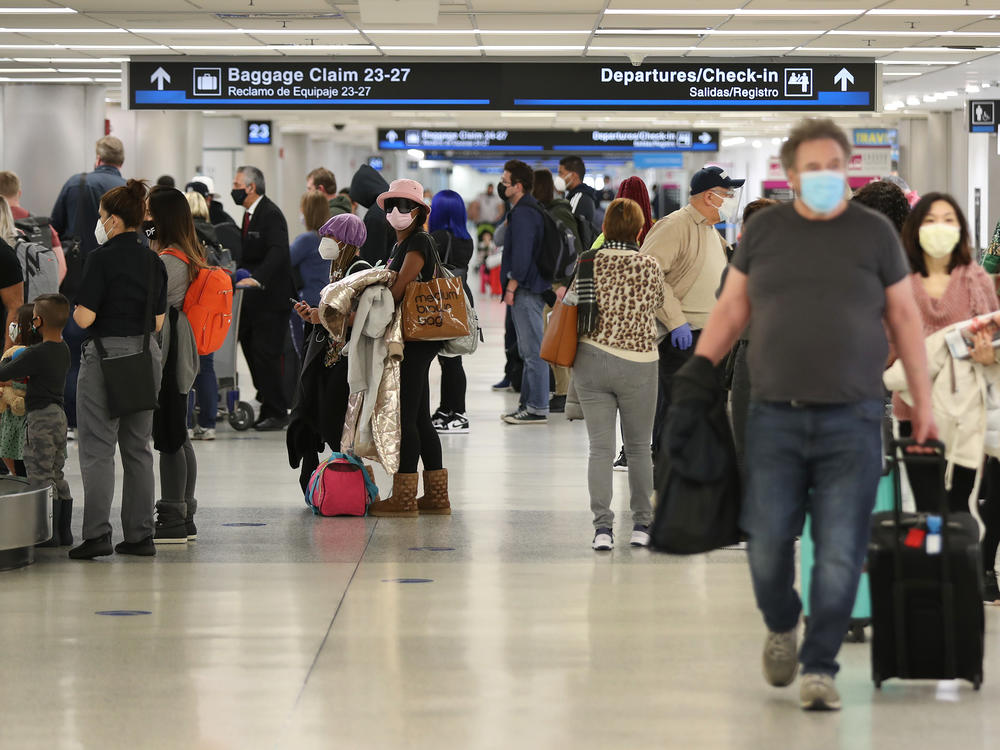Section Branding
Header Content
Florida Officials Say They'd Fight Any Potential Domestic Travel Restrictions
Primary Content
Elected officials in Florida are reacting strongly against media reports that the White House is considering imposing domestic travel restrictions to control the spread of COVID-19.
"It would be unconstitutional. It would be unwise and it would be unjust," Gov. Ron DeSantis said Thursday at a vaccination site in Port Charlotte, on Florida's Gulf Coast.
The Republican governor's remarks came after media reports saying federal officials are weighing travel restrictions, including Florida, aimed at slowing the spread of the highly contagious variant first identified in the U.K.
Asked about the reports on Thursday, White House press secretary Jen Psaki told reporters that no decisions have been made about additional public health measures that would affect domestic travel.
Florida leads the nation in the number of known cases of the B.1.1.7 strain of the coronavirus, the variant that emerged in the U.K. Researchers says the variant now accounts for up to 15% of the new cases statewide. Because it is more contagious, public health experts worry the emergence of the variant could accelerate spread of the disease.
DeSantis pointed out that coronavirus-related emergency room visits in Florida have dropped by more than half since December. He said he "100%" opposed any move to restrict domestic travel.
"Restricting the right of Americans to travel freely throughout our country while allowing illegal aliens to pour across the southern border unmolested would be a ridiculous, but very damaging farce," DeSantis said. "It would not be based in science. It would purely be a political attack against the people of Florida."
Florida Sen. Marco Rubio, who is also a Republican, reacted in much the same way as DeSantis. He said if travel restrictions are imposed, they'll likely be challenged and overturned in court. In a letter he sent to President Biden, Rubio used much of the same language as the governor.
"Instituting a travel ban, or any restriction of movement between the states, would be an outrageous, authoritarian move that has no basis in law or science," Rubio said. "Instead, it would only serve to inflict severe and devastating economic pain on an already damaged economy."
Copyright 2021 NPR. To see more, visit https://www.npr.org.

